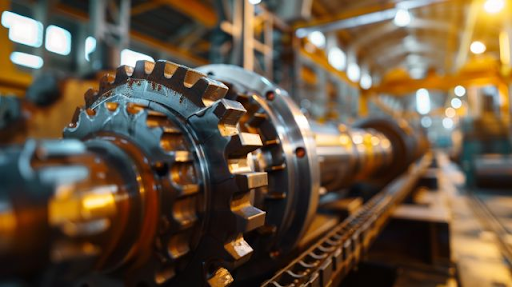Choosing The Right Industrial Compactor For Large Scale Facilities
Managing waste in large scale facilities can be a daunting task. The volume of materials produced daily is enormous, and inefficient disposal can lead to higher costs and operational slowdowns. A reliable solution is essential for keeping operations smooth and facilities safe. One of the best tools for this challenge is an industrial compactor. These machines compress waste efficiently, reduce hauling costs, and improve overall facility management.
Understanding Industrial Compactors And Their Benefits
An industrial compactor is a heavy-duty machine designed to compress large volumes of waste into manageable sizes. By reducing the physical space waste occupies, these machines make disposal more efficient and cost-effective. Beyond saving space, industrial compactors minimize the frequency of waste pickups and reduce the environmental footprint of the facility. Investing in the right compactor ensures long-term savings and smoother operations.
Evaluating Facility Needs For Industrial Compactors
Before selecting an industrial compactor, it’s crucial to assess your facility’s specific requirements. Consider the types of waste generated, the volume produced daily, and the available space for installation. Different compactors suit different needs—some handle general refuse, while others are specialized for recyclables or hazardous materials. Matching the machine to the facility’s needs ensures optimal efficiency and longevity of the equipment.
Choosing Between Stationary And Mobile Industrial Compactors
Industrial compactors come in two main types: stationary and mobile. Stationary compactors are fixed installations, ideal for facilities with high-volume waste streams in a single location. Mobile compactors, on the other hand, offer flexibility and can be relocated as operational needs shift. Understanding these differences helps managers choose a system that fits workflow patterns while maximizing convenience and performance. The choice between stationary and mobile solutions directly impacts the efficiency of the industrial compactor.
Selecting The Right Size And Capacity
Capacity is a critical factor when choosing an industrial compactor. Undersized machines may require frequent emptying, creating unnecessary downtime, while oversized units can be costly and space-consuming. Consider peak waste volumes, operational hours, and future growth when determining the appropriate size. Proper sizing ensures that the industrial compactor meets the facility’s demands without excess strain on staff or resources.
Maintenance And Operational Considerations
Maintenance is key to keeping an industrial compactor running smoothly. Regular checks, lubrication, and part replacements prevent breakdowns and extend machine life. Training staff on safe operation is equally important to avoid accidents and maintain efficiency. A well-maintained industrial compactor minimizes disruptions and keeps waste management processes seamless.
Cost Efficiency And Long-Term Value
While the upfront investment in an industrial compactor can be significant, the long-term savings are substantial. Reduced hauling costs, lower labor requirements, and minimized environmental impact contribute to overall cost efficiency. Selecting a reliable machine with proven durability ensures that facilities gain maximum value over time. Strategic investment in the right compactor pays off in operational stability and reduced expenses.
Conclusion
Choosing the right industrial compactor is more than a purchase decision—it’s a strategic step toward operational efficiency. Understanding facility needs, evaluating machine types, sizing correctly, and maintaining equipment properly ensures smooth waste management. Large scale facilities that invest thoughtfully in industrial compactors not only improve efficiency but also create safer, cleaner, and more cost-effective operations.



